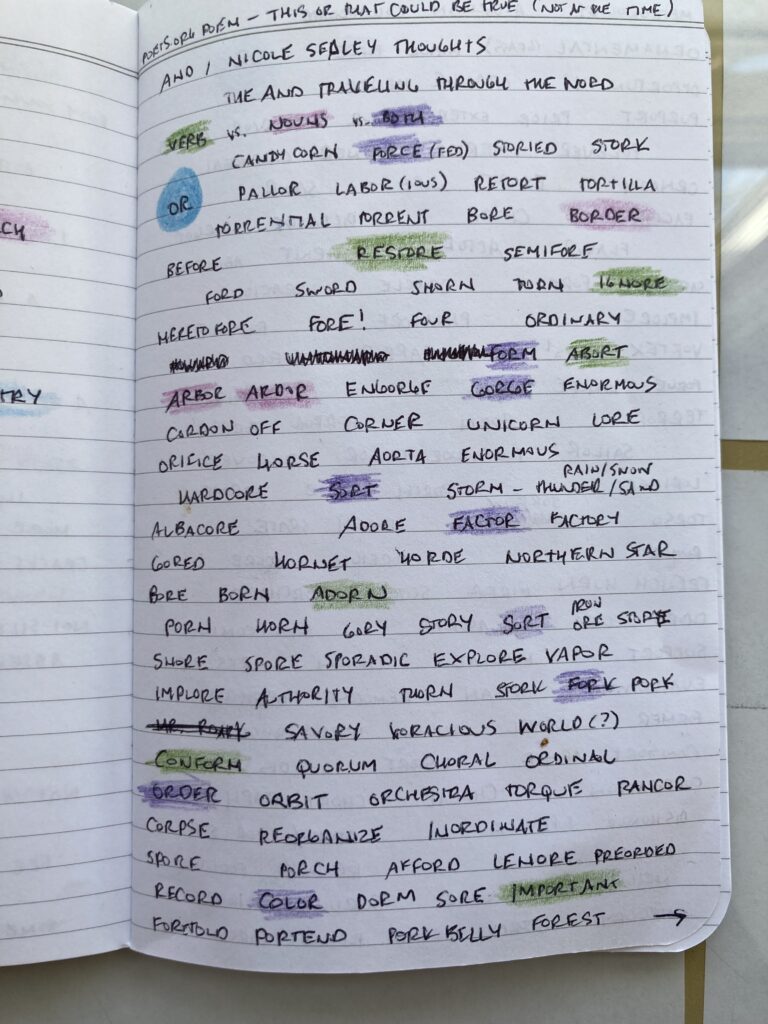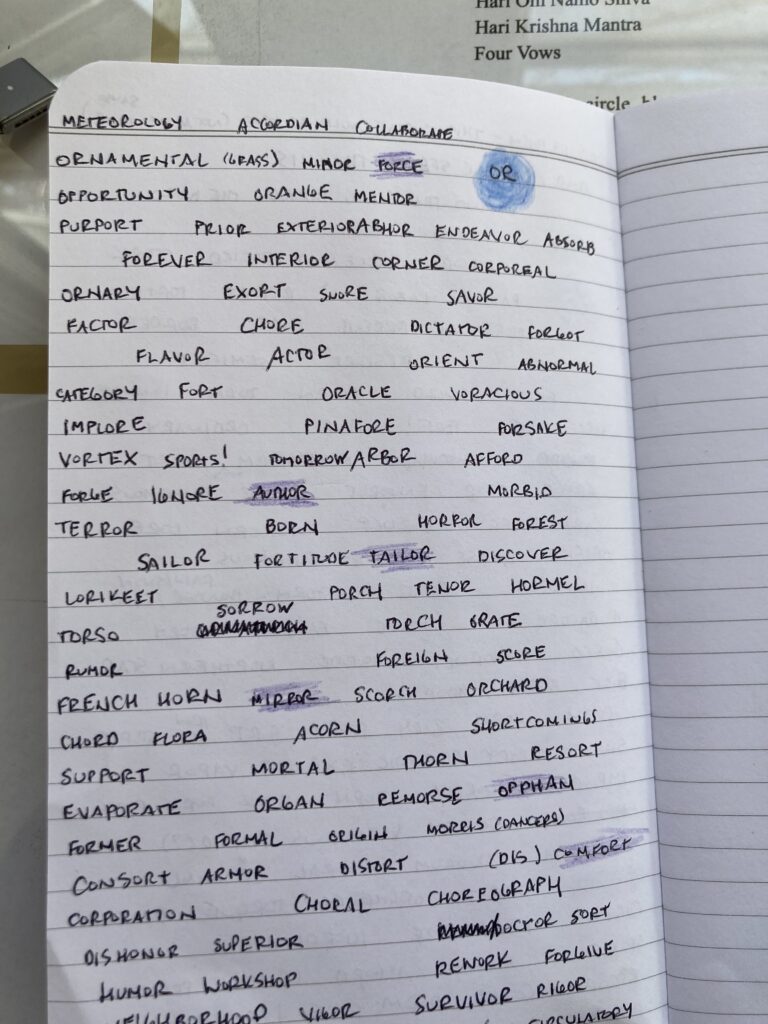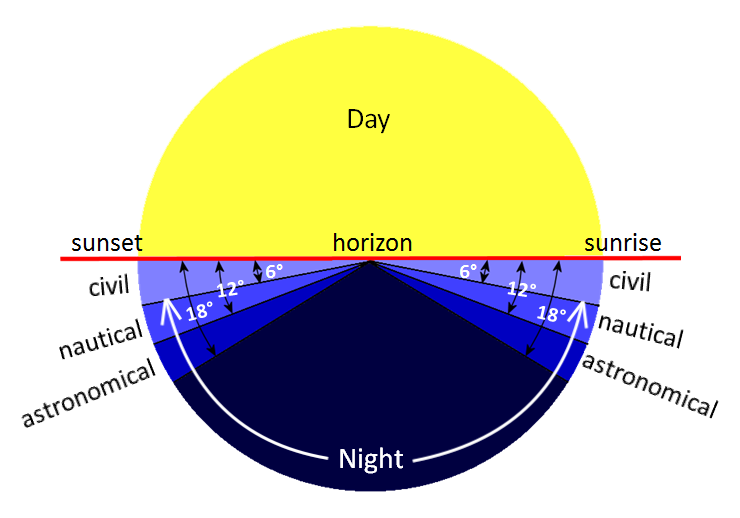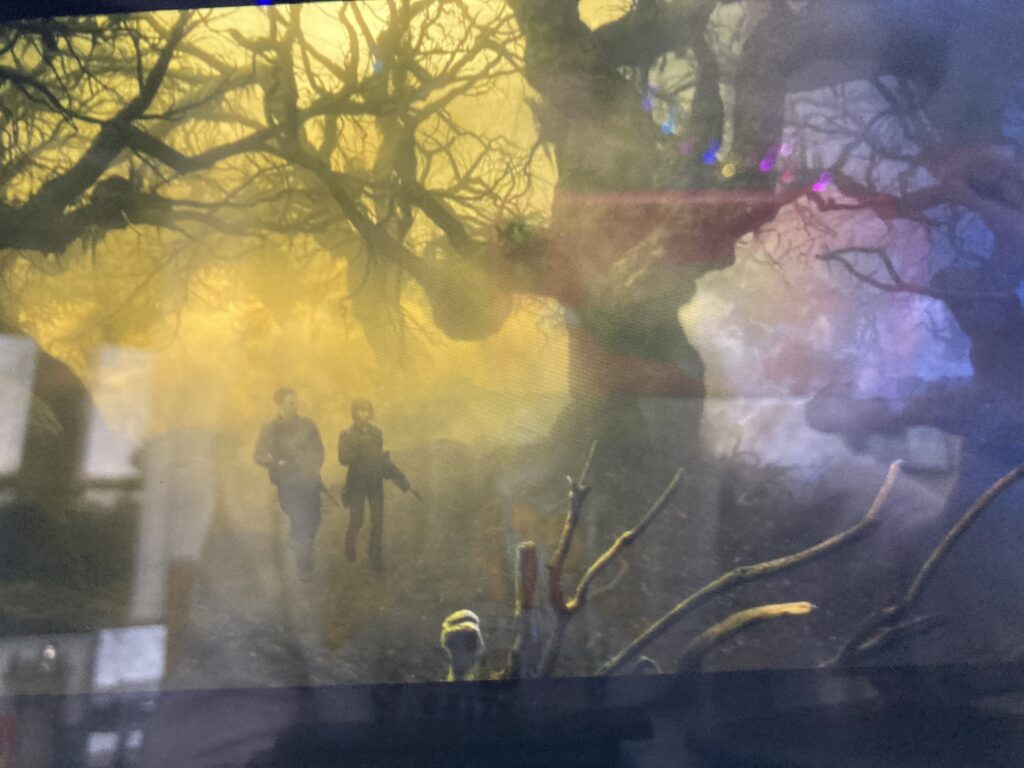bike: 8.6 miles
lake nokomis and back
61/64 degrees
Cooler this morning. When I got up I briefly thought, I don’t need to go today; it’s too cold. Silenced that voice and went — a great bike ride! The gray made it harder to see, but I didn’t care. I don’t remember having a single scary moment. Encountered runners and walkers and other bikers, several surreys just past the park, one chill biker with a dog in the front, listening to music (I think it was jazz?) as he went. Heard the creek rushing, had to dismount when the new part of the path was covered with black sandbags, noticed a few people sitting in the grass on the stretch between lake hiawatha and lake nokomis.
My favorite part: rounding the curve, seeing the orange buoys in the water as I neared the beach. Open swim!
swim: 4 loops
lake nokomis open swim
62 degrees
4 loops today! 3 in a row, a bathroom break (out of the water!), then back in for another loop. The water was warmer than the air and clear near the shore. Starting my last loop, I swam through the swimming area and was able to see the bottom the entire way — only “unnatural” thing I saw was a bright colored pair of goggles.
The first buoy was far away from the big beach. The second buoy kept moving — and not just because of wind, I watched as the lifeguard tugged it to a different spot during one loop, then dragged it to the third orange buoy during the 3rd loop — why?
Today there was a sailboat out in the water. Not menacing — it hugged the edge of the shore, staying far from the course.
Most of the bubbles looked like scooby-doo bubbles — translucent and outlined (for clip/discussion, see 2 aug 2024), but the one at the bottom end of visual field kept looking like a glob of snot — gross!
The water was a darkish green-blue. The milfoil was orange-green. The sky, pale blue.
Someone parked in the parking lot had their headlights on and before I realized that, I was using it to sight, thinking it was the far green buoy. Nope.
It was a great morning for a swim. What a loss it would have been if I had skipped it, what a gift to have gone!
overheard, at 11:15 (open swim ends at 11:00): one swimmer talking to another — I kept making excuses until I finally said to myself, you have to go! stop doing the dishes!
birds
On mornings when the birds singing — which is most days, but not today — I’d like to remember and chant these lines from the end of “Birdsong of Shaker Way” by Ann-Margaret Lim:
one more day, filled with birds—
brightened, lightened, trilled by birds:
precious, diamond-throated
sweet song, miracle-toting birds
the-gift-of-day-is-here birds.
Bird, bird, bird. Hello bird.
You lift me up bird.
You sing the day beautiful, bird.
finds from my On This Day practice
1
Reading my past entries from 27 june, I reunited with some favorite lines from the wonderful poet, Tomas Tranströmer in his poem, “Under Pressure.” I decided to fit them into my breathing form:
You can see
beauty
only from
the side,
hastily,
Dense grain
on the field,
colours
in a yellow
stream. Rest-
less shadows
in my head
are drawn there.
They want
to creep in
to grain
and turn gold.
2
From 27 june 2023, definitions of about:
about: reasonably close to; almost; on the verge of; on all sides; around the outside; in many different directions — here and there; near; concerning . . . out and about (oot and a boot — Minnesota style)
3
From 27 june 2024, blessing the boats/ lucille clifton
As I read this poem, I thought about how I often imagine myself as a boat in the water. Not a fish deep in the lake, but a boat, on the line between surfaced and submerged, half of me underwater, half always exposed to the air.
5
today
voice
curve
water
beach
clear
shore
think
third
green
sight
great
scary
chill
biker
front
music
heard
creek
black
grass
would
today: great — a chill felt on the curve
I heard music: a grass voice a water voice a green voice a shore voice a creek voice — all here today, singing together
here in the water, would clear sight make anything less scary?
a chill in the water
update, 28 june, 2025: This morning, reading through past entries, I remembered a few more things about the swim yesterday. First, breathing. I did my usual 1 2 3 4 5 breathe, but also 1 2 3 and 1 2 3 4 5 breathe right 1 2 3 4 breathe right 1 2 3 4 5 breathe left. Then I tried 1 2 3 breathe right 1 2 breathe right 1 2 3 breathe left 1 2 breathe left. I’ve been trying out how it feels to stroke less between breaths. I also was conscious of how my sighting fit into all of this — 1 2 3 4 5 breathe right 1 2 3 sight 4 5 breathe left. I never breathe when I sight; I just lift my forehead out of the water. Why does this matter? Beyond its impact on the biomechanics of my stroke and on my ability to keep straight and moving towards the buoy even when I can’t see it, stroke/sight/breath is fascinates me in terms of the spaces/moments it creates above and below the surface, in water and air, as fish and human, boat body and mind. Which of these spaces is more real, which less? If both are real, what reality do they offer?
When I’m swimming, how much time do I spend with my head and half my body submerged versus above the water? That is, how long do I get to inhabit my water world?
Second, planes. Lake Nokomis is near the airport, so there are often planes high above — circling like sharks, I like to imagine. During the swim I noticed several places that seemed to be sped up. It looked like they were moving extra fast? Where they? Or was I just seeing them strangely?



